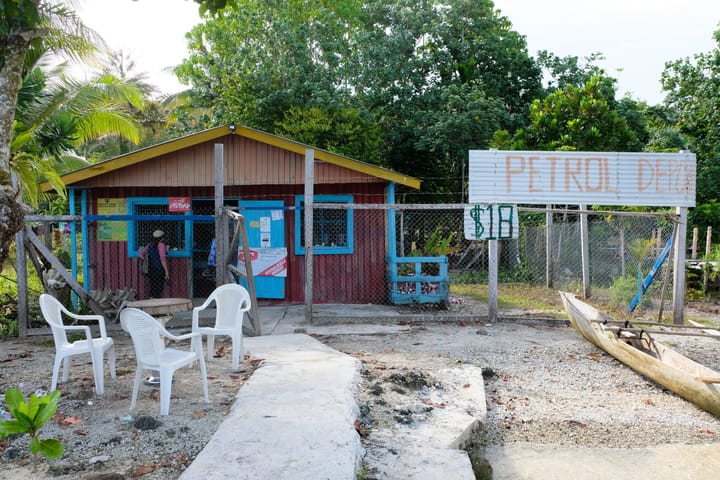Streamlining and Shortening Licensing Processes Through a One-Stop-Shop Facility (the One-stop Business Facilitation Centre)
As a small landlocked country surrounded by South Africa, one would think that making import and export easier for local businesses is a critical issue. How else can business obtain access to the markets they require to expand and employ people? However, Doing Business 2010 reports that it takes 44 days to obtain an export license and 49 days for an import license. The World Bank claims that each additional day that a product is delayed prior to being shipped reduces trade by more than one percent. See Simeon Djankov, Caroline Freund Cong S. Pham (2008) Trading on Time, World Bank, Washington DC.
While importing and exporting is not easy for businesses in Lesotho, the Government has sought to improve this situation through the creation of a one-stop-shop facility. Originally called the Trade and Investment Facilitation Centre, this facility was renamed to the One Stop Shop and now is known as the One-stop Business Facilitation Centre (OBFC).

In February 2009, I visited the centre as part of a DFID review of the Priority Sector Programme (PSP) promoting job creation through business environment reform. The PSP programme had boosted the development of the centre through technical and financial assistance. I revisited the centre in November 2009 during a subsequent review of the PSP, which is due to conclude in January 2010.
The Government of Lesotho had talked for a long time about the need to establish a one-stop facility for business licensing and other regulations. In 2004, the Inter Ministerial Task Team (IMTT), a committee of government ministries and business representatives from the textile and apparel sector, agreed to the creation of a centre that brought together and delivered a streamlined and integrated suite of business start-up services for businesses and investors to attract and maintain foreign direct investment. Such services included Trading and Manufacturing Licences, Import and Export Issuances, Residency Visas and Work Permits.
While the centre is housed in and coordinated by the Ministry of Trade and Industry, Cooperatives and Marketing (MTICM), officials from a range of representatives of relevant government agencies form its staff. Thus, rather than being an arm of the ministry, it is a collation of many agencies, each of which are represented on the centre’s steering committee. This makes management of the centre difficult, as each staff member is paid for and responsible to their own separate ministries. An alternative to this model is for the centre to have its own staff, either as a part of the MTICM or as a semi-autonomy government agency, to which government agencies devolve their regulatory functions. While the centre is currently donor funded (through supported provided by DFID and the World Bank), the ministry intend to employ a centre director and develop an operational budget that will give it the same status as a department.
The OECD suggests that one-stop shops for obtaining license sand permit information are widespread in OECD countries, providing information required by a given business, application forms and requirements and contact details. As experience has accumulated, and technology has improved, the services provided have tended to expand: this can include information on related issues, such as codes of practice, lists of applicable laws and regulations, as well as information on licenses and permits required by other levels of government. One-stop shops have reduced costs of transactions and simplified the formalities and paperwork that citizens and businesses have to comply with. All of these efforts have potential impacts in terms of burden reduction, serving also to other governance values, such as transparency and accountability (OECD, 2005, Background Document on On-line Registers for Laws, Regulations and Business Formalities, prepared by Delia Rodrigo).
According to the World Bank’s Doing Business 2009 report, thirty-nine countries created or improved a one-stop-shop in the past five years with the aim of improving the regulatory environment for businesses. These include Belarus, Burkino Faso, Croatia, Egypt, Jordan, Mauritius and Azerbaijan. According to the World Bank, the introduction of a one-stop-shop can be a fast way to build momentum for reform to the regulatory environment for businesses. However, the World Bank has also cautioned that creating a one-stop-shop is not a “magic bullet” and countries run the risk of creating ‘one-more-stop’ that actually increase the administrative procedures businesses must follow. Experiences in other countries shows that even under the best conditions, the creation of a one-stop-shop does not solve the innate problems of a complex and unwieldy legal and regulatory framework for businesses. Thus, while a one-stop-shop may be a useful mechanism for focusing reform, it is rarely an end in itself.

In the case of Lesotho, the One-stop Business Facilitation Centre sought to bring many government agencies with business regulatory functions under one roof. Thus, allowing business clients to obtain, fill-out and submit all the necessary forms in one place, rather than run around Maseru, the country’s capital.
However, the process of bringing these agencies together has been the catalyst to a process in which participating agencies are beginning to identify ways where they can streamline and integrate their regulatory functions. Thus, making compliance easier for the end user. In 2009, the centre developed software to manage and issue import and export permits online.
In addition, efforts have been made in 2009 to decentralise the functions of the centre beyond the Maseru office. Satellite offices have been established at the border post in Maputsoe as well as in the district offices of Berea and Mafeteng. Thus, by December 2009 these three offices are able to electronically issue licenses and export permits, while the Maputsoe border post can also issue AGOA export permits.
The SME Department of the World Bank Group describes three kinds of one-stop-shops for business licensing and permits (World Bank Group, 2006,Reforming Business Registration Regulatory Procedures at the National Level – A Reform Toolkit for Project Teams):
- Facilitating OSS: The OSS does not implement the registration process, but provides information and collects documents (from the business) to be distributed to other agencies. Once a certificate of registration is sent back to the OSS, the business is notified and arranges collection.
- Approval OSS: This type of OSS houses representatives of all relevant government agencies at one location. Each assigned official completes one stage in the process and transfers the application to the next desk for further processing. Theoretically, all approvals are possible under one roof. This is the current model for the Lesotho OBFC.
- Empowered OSS: One agency is authorized by multiple involved ministries or other agencies to process business-registration applications on their behalf.
The centre’s strategic plan indicates that its mandate is to bring together and deliver a streamlined and integrated suite of business services for enterprises and investors. In this way the centre will contribute to improvements in the investment climate, the ease of doing business, and the facilitation of increased trade and investment in the Kingdom of Lesotho.

Its mission is to support increased trade and investment in Lesotho through providing efficient and friendly business services to its clients and advocating for a more business-friendly regulatory environment.
In the future, the centre aims to provide the following suite of services:
- Business licensing
- Customs clearances
- Work permits
- Residence permits
- Company registration
- Tax clearances
- Utilities payments
- Investment information
- Business statistics
- Advocacy for regulatory reform
The Lesotho LBFC faces major challenges in ensuring the sustainability of the centre and ensuring the centre acts as a catalyst to the streamlining and improvement of the regulatory framework for business registration and licensing. This requires a whole-of-government perspective and a commitment to providing an effective service to business customers in Maseru and beyond.


